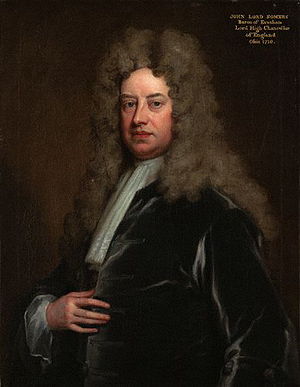
Was at this date (1704) fifty-four years of age. His distinction as a lawyer was gained after he had spent some years in the pursuit of literature; but when he applied himself entirely to his profession he attained rapid success. He opposed the measures of the Court during the reigns of Charles II and James II, and, after the Revolution, passed quickly, by the steps of the Solicitor and Attorney Generalships, to the office of Lord Chancellor. In the words of Lord Sunderland to William III, he 'was the life, the soul, the spirit of his (the Whig) party.' He was one of those attacked by the Commons in those proceedings which Swift condemned in his treatise on Dissensions in Athens and Rome: and at that time Somers resigned his office. At the date of this dedication he was still without office, but held high rank in his party. From 1708 to 1710 he was Lord President; but Swift had then become too much estranged from the Whigs to maintain his former cordial relations with Somers. During the later years of Anne's reign, Somers was laid aside by ill health, and he died in 1716. He remained throughout life a warm patron of literature.